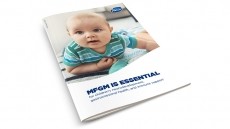Low-fat dairy linked to lower diabetes risk in women
for women by over 20 per cent, says a new study from Harvard.
Dairy food makers looking to drill further into the health benefits of their primary foodstuffs will welcome the new findings that appear to fit with previous research for men (May 2005, Archives of Internal Medicine).
"Although studies have indicated that increased dairy intake may reduce risk of overweight and insulin resistance syndrome, data directly relating dairy intake to type-2 diabetes remain sparse," explained lead author Simin Liu in the July issue of the journal Diabetes Care (Vol. 29, pp. 1579-1584).
To attempt to fill this void in data, the scientists from Brigham and Women's Hospital, the Massachusetts General Hospital, Harvard School of Public Health, Harvard Medical School, UCLA, and the Center for Disease Control and Prevention tracked 37,183 women for ten years.
The prospective study found that the risk of developing type-2 diabetes was cut by four per cent for each serving-per-day increase in dairy intake.
During the ten years of follow-up, 1,603 women developed type-2 diabetes. After adjusting the data to account for BMI, smoking status, family history of diabetes, high cholesterol and other potential risk factors, the researchers found that women in the highest dairy intake group had a 21 per cent lower risk of type-2 diabetes than the women in lowest dairy intake group.
This beneficial association was apparently attributable to low-fat dairy intake.
"A dietary pattern that incorporates higher low-fat dairy products may lower the risk of type-2 diabetes in middle-aged or older women," wrote the researchers.
The mechanism behind the effect is not clear, said the researchers, and further research was necessary to confirm the results and elucidate the active ingredients.
However, when the researchers did adjust for vitamin D, calcium, magnesium, fat and fibre content of the diary products, the association between dairy intake and diabetes risk was still present.
This suggests a potential role for other nutrients in the milk, possibly milk proteins. A report at the end of last year in the American Journal of Clinical Nutrition (vol 82, pp. 972-979) reported that skimmed milk consumption could lower the risk of hypertension, and put the effects down to both caseins and whey proteins in the milk.
"It is plausible that saturated fats in whole-fat dairy products somehow neutralize the beneficial effect of dairy protein," said the lead author of the AJCN study, Alvaro Alonso from the University of Navarro in Spain.
Liu and co-workers called for research to continue in this area before any public health measures concerning dairy consumption could be recommended.
An estimated 19 million people are affected by diabetes in the EU 25, equal to four per cent of the total population. This figure is projected to increase to 26 million by 2030.











